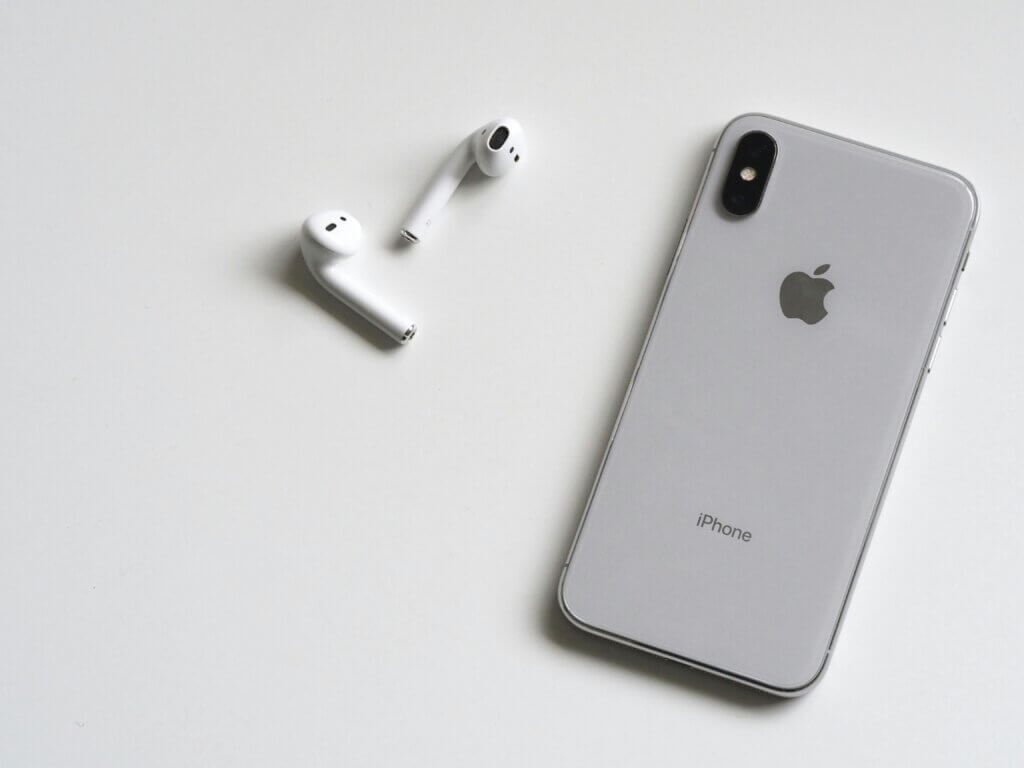After reading this article, you’ll:
- Understand Apple’s new “Apple Intelligence” AI system, which integrates generative AI models across Apple’s apps and devices, focusing on privacy and personalization.
- Learn about the major upgrades to Siri, including ChatGPT integration, and how Apple emphasizes on-device processing and private cloud computing to maintain user privacy.
- Discover the AI-powered features and enhancements introduced in iOS 18, iPadOS 18, watchOS 11, macOS Sequoia, and visionOS 2, as well as the new possibilities for developers to create intelligent apps using Apple’s AI tools and frameworks.

Apple unveiled its long-awaited artificial intelligence strategy at its Worldwide Developers Conference (WWDC) 2024, officially announcing “Apple Intelligence.” This new personal intelligence system deeply integrates powerful generative AI models across Apple’s apps and devices, including the iPhone, iPad, and Mac.
Siri Gets Major AI Upgrade with ChatGPT Integration
As part of Apple’s push into AI, Siri received a significant upgrade. The voice assistant is now more deeply integrated into iOS, appearing as an interactive orb that users can tap to activate. Siri leverages large language models to better understand natural language requests, keep track of context in conversations, and perform tasks within and across apps.
Additionally, Apple announced that Siri will integrate OpenAI’s ChatGPT to offer enhanced responses. With user permission, Siri will seamlessly tap into ChatGPT to provide more detailed answers to certain queries. This integration will be available for free and without requiring an account.
Apple Intelligence Focuses on Privacy and Personalization
Unlike some other tech giants rushing into AI, Apple is taking a differentiated approach with Apple Intelligence. The company emphasized “personal intelligence” over artificial intelligence, focusing more on customizing experiences to individual users rather than wide-scale automation.
Apple also underscored its commitment to user privacy, stating most processing will happen directly on devices rather than in the cloud. For cloud-based processing, Apple is introducing Private Compute Cloud with strict access controls. This focus on privacy while delivering helpful, personalized AI could set Apple apart from competitors like Google and Amazon.
AI for the Rest of Us
 A central theme emerging from Apple’s WWDC keynote is making AI accessible, helpful, and unintimidating for everyday users. The company is determined to leverage advanced machine learning while avoiding technical jargon.
A central theme emerging from Apple’s WWDC keynote is making AI accessible, helpful, and unintimidating for everyday users. The company is determined to leverage advanced machine learning while avoiding technical jargon.
“We want to extend the privacy and security of your iPhone into the cloud,” said Apple’s Craig Federighi. This balancing act underscores Apple’s strategy of focusing AI on enhancing user experiences across native apps rather than as a platform play.
Emphasis on On-Device Processing and Private Cloud Compute
While unveiling Apple Intelligence, Apple stressed privacy protections such as on-device processing and its new Private Compute Cloud. Keeping data processing on iPhones and iPads as much as possible, and implementing strict access controls for cloud-based operations, aims to give users more transparency and control.
This approach stands apart from competitors by ensuring personal data stays private even when tapping into advanced machine learning algorithms.
Integration of AI Across Native Apps
Apple showcased how Apple Intelligence will integrate into apps like Siri, Mail, Messages, and Photos to provide helpful features while keeping user data secure. Siri will gain expanded intelligence to handle multi-step tasks and requests while Mail can generate quick replies. Messages gains more expressive tools while Photos can recognize people and objects for searching.
The breadth of Apple’s ecosystem means users will encounter the benefits of AI across various touchpoints while enjoying privacy safeguards. This pervasive, friendly approach to AI could become a key competitive advantage.
iOS 18: A More Personalized Experience
Apple introduced iOS18 at WWDC 2024, previewing major updates that further customize and personalize the iPhone experience. The new operating system release builds on Apple’s focus of putting “intelligence and utility” directly into users’ hands.
Home Screen Customizations and Widgets
iOS 18 introduces new ways for users to tailor their iPhone’s look and layout to their liking. Home screen widgets can now be placed anywhere, while icons automatically arrange themselves around chosen wallpapers and themes. The more personalized home screen reflects Apple’s ethos of building devices that conform to users rather than the other way around.
Enhanced Privacy Features
Privacy remains a major emphasis in iOS 18, with upgrades like the ability to lock individual apps with Face ID or passcodes. Apple also unveiled encrypted contact sharing to give users more control over which apps can access contacts. These privacy-focused features complement Apple Intelligence by safeguarding personal data.
New Messaging Capabilities
The Messages app gains new features including edit, undo, and mark unread for more flexible conversations. Users can also schedule messages to be sent at specific times. Additionally, Apple introduced Genmoji — customized emoji generated using Apple’s machine learning capabilities.
Deepening Siri Integrations
With ChatGPT integration, Siri gains expanded AI capabilities while still providing seamless access without new accounts or barriers. Tight integration between iOS 18 and enhanced Siri intelligence aims to help iPhone users accomplish more while enjoying greater privacy protections.
Beyond the iPhone: AI Across Apple Ecosystem
While much of the WWDC 2024 spotlight centered on iOS 18 and the iPhone, Apple also showcased major AI updates across its broader ecosystem of devices. The expansive integration of Apple Intelligence exemplifies the company’s unified approach to user experiences.
iPadOS 18: Smarter Multitasking

iPadOS 18 adds a new Calculator app with Apple Pencil integration, allowing users to write equations for automatic solving. Additionally, the iPad operating system leverages machine learning for advanced handwriting recognition and spellcheck features called Smart Script. These capabilities aim to turn the iPad into an even more seamless replacement for pen and paper.
watchOS 11: Personalized Health Tracking
The new watchOS 11 release brings AI-powered health tracking and personalized dashboard recommendations. Users can gain insights into metrics like respiratory rate and receive guidance when multiple health indicators fall outside expected ranges. As with iOS 18, watchOS 11 focuses more on learning user patterns rather than imposing generalized health advice.
macOS Sequoia: iPhone Mirroring and Smarter Safari
For Mac users, macOS Sequoia introduces the ability to mirror iPhone screens directly on the desktop. Safari also gains AI-powered highlights that summarize key information from web pages. Enhanced continuity across devices remains a priority, as Apple brings its latest machine learning to more platforms.
visionOS 2 Takes Vision Pro Further
Alongside software updates for existing devices, Apple unveiled visionOS 2 featuring major upgrades for its Vision Pro mixed reality headset. The advanced capabilities aim to cement Vision Pro as the next evolution of spatial computing.
Intuitive New Gestures and Immersive Displays
visionOS 2 introduces new hand gestures for more intuitive navigation and control of Vision Pro. Apple is also enhancing visual experiences with support for spatial photos that render images in 3D. Users can additionally experience an ultrawide virtual display equivalent to multiple large monitors.
Expanded International Availability
While Vision Pro launched just this year, Apple is aggressively expanding availability outside the U.S. New countries where Vision Pro will be available include China, Japan, Singapore, Australia, Canada, France, Germany, and the UK.
The rapid introduction of visionOS 2 and international growth signals Apple’s long-term commitment to blending AI with augmented and virtual reality. As Apple connects its ecosystem with Vision Pro, the company could gain first-mover advantage in spatial computing thanks to tight integration between world-class hardware, software, and now on-device intelligence.
Apple Intelligence Unlocks New App Possibilities
The extensive AI updates announced at WWDC 2024 promise to enable developers to build the next generation of intelligent apps. Apple is providing robust toolkits for integrating machine learning while empowering developers to shape the future of personal computing experiences.
Leveraging Apple Intelligence in Innovative Ways
Developers can tap into the on-device Apple Intelligence framework to integrate powerful features like image generation, semantic search, and natural language processing. Support for Private Compute Cloud also gives developers access to additional large language models with strict access controls to ensure user privacy.
The breadth of Apple’s AI platform means developers can focus more on creating delightful experiences rather than building their own models.
ChatGPT Integration Opens New Doors
Siri’s integration with ChatGPT also presents new opportunities for developers. Apps can work in concert with Siri intelligence to provide robust voice-driven interactions leveraging ChatGPT’s capabilities. As Apple expands the Siri API, developers will enjoy more flexibility in harnessing AI to deliver next-level app functionality.
For app developers, Apple’s advancements unlock an abundance of opportunities to craft the next generation of apps with immersive AI capabilities. Apple is not only democratizing access to powerful AI toolkits, but providing a foundation developers can confidently build upon knowing Apple prioritizes user trust.
As Apple stays laser-focused on the intersection between innovation and privacy, users and developers alike can expect even more enhancements as Apple Intelligence and other nascent technologies mature. The seeds planted at WWDC 2024 may deepen intelligence across every Apple device in the years ahead.
Frequently Asked Questions on Apple WWDC 2024
What is Apple Intelligence, and how does it differ from other AI systems?
Apple Intelligence is Apple’s new personal intelligence system that deeply integrates generative AI models across Apple’s apps and devices. It focuses on personalization and user privacy, setting it apart from competitors like Google and Amazon. Apple Intelligence emphasizes on-device processing and introduces Private Compute Cloud with strict access controls to maintain user data privacy.
How does the integration of ChatGPT with Siri benefit users?
The integration of ChatGPT with Siri allows the voice assistant to provide more detailed and enhanced responses to certain user queries. This integration is available for free and does not require users to create a separate account. With user permission, Siri seamlessly taps into ChatGPT to offer improved answers while maintaining user privacy.
What new features and enhancements does iOS 18 introduce?
iOS 18 introduces several new features and enhancements, including increased home screen customization options, the ability to place widgets anywhere, and automatic icon arrangement around chosen wallpapers and themes. The update also brings enhanced privacy features like the ability to lock individual apps with Face ID or passcodes and encrypted contact sharing. The Messages app gains new capabilities such as message editing, undo, mark unread, and scheduled sending.
How does Apple Intelligence benefit developers in creating new apps?
Apple Intelligence provides developers with robust toolkits for integrating machine learning capabilities into their apps while maintaining user privacy. Developers can leverage the on-device Apple Intelligence framework to incorporate features like image generation, semantic search, and natural language processing. The ChatGPT integration with Siri also opens up new opportunities for developers to create apps with advanced voice-driven interactions.
What updates and improvements does visionOS 2 bring to the Vision Pro mixed reality headset?
visionOS 2 introduces several updates and improvements to the Vision Pro headset. These include new hand gestures for more intuitive navigation and control, support for spatial photos that render images in 3D, and an ultrawide virtual display equivalent to multiple large monitors. Additionally, Apple is expanding the international availability of Vision Pro to countries like China, Japan, Singapore, Australia, Canada, France, Germany, and the UK.





